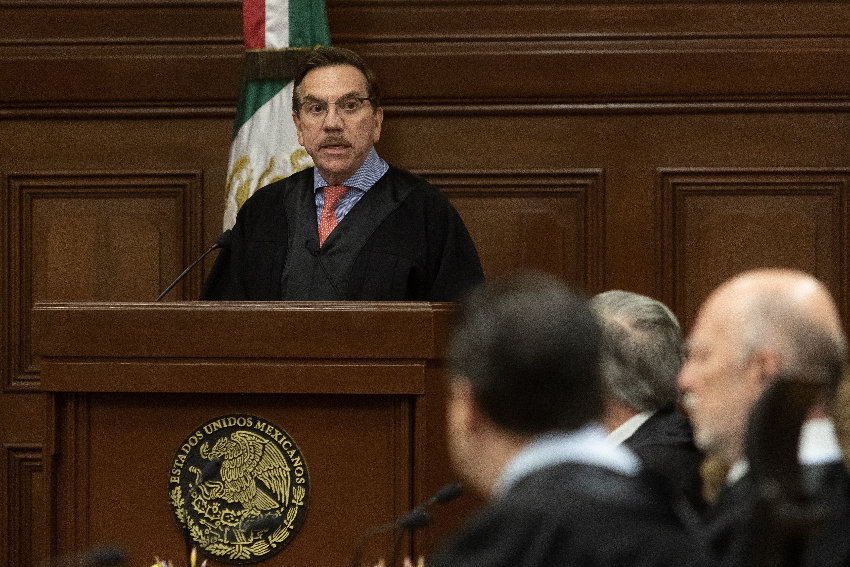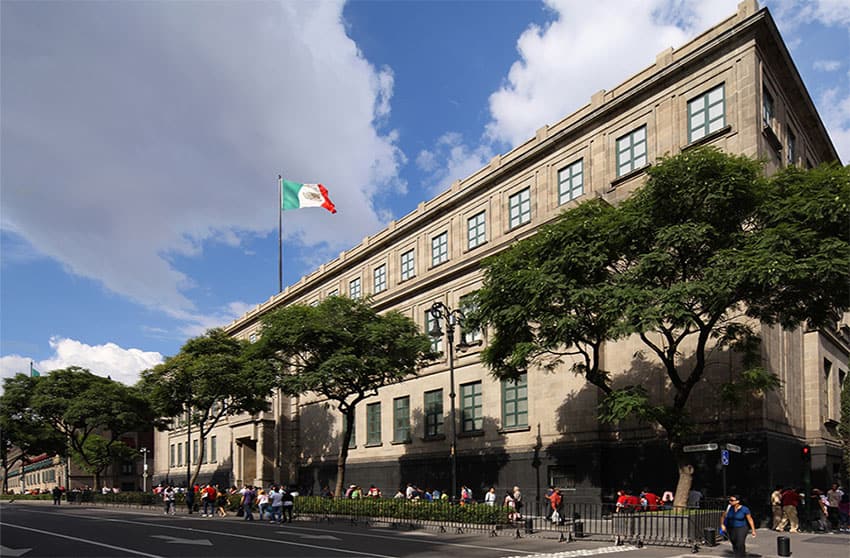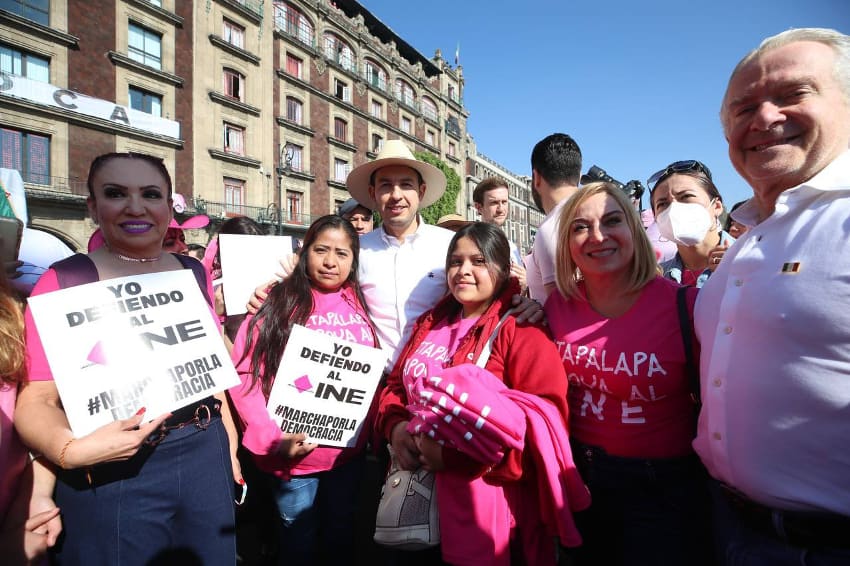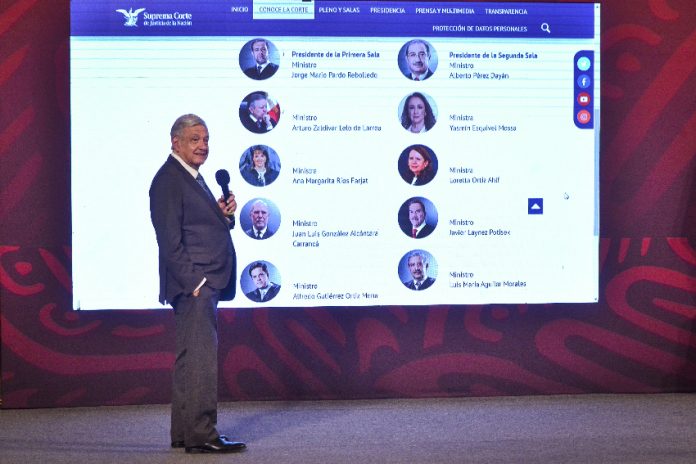The federal government has announced it will challenge a Supreme Court (SCJN) ruling against a major electoral reform package that passed Congress last month.
The SCJN announced Friday that Justice Javier Laynez Potisek had authorized the suspension of “Plan B” electoral reform laws, which took effect after the publication of a presidential decree on March 2.

The suspension – which Laynez said was necessary to protect democracy and voters’ rights – was requested by the National Electoral Institute (INE), which is seeking to prevent a significant cut to its budget as well as measures that curtail its autonomy and diminish its capacity to sanction politicians who violate electoral laws.
The institute says the budget cut approved by the Congress will force it to dismiss some 6,000 employees, or about a third of its workforce, in the lead-up to next year’s presidential and congressional elections.
Laynez also ruled that the SCJN will “admit” an INE lawsuit that seeks to invalidate the “Plan B” reform package, which the ruling Morena party put forward after a more ambitious plan to overhaul Mexico’s electoral system was rejected late last year.
The suspension of the laws will remain in effect until the SCJN makes a definitive ruling on INE’s lawsuit. The case involves a “possible violation of citizens’ political-electoral rights,” the SCJN said in a statement.

The court said that Laynez asked the Mexican Congress and the federal executive to present their defense “within the legal period.”
The office of President López Obrador published a statement on Sunday that asserted that Laynez had “ripped pages out of the constitution” in issuing a suspension of the electoral reform laws and accepting the INE’s lawsuit for consideration.
“The people of Mexico should know that it’s not common for the Supreme Court to announce, on Friday night and without formally notifying the authorities, a ruling that is so important,” the president’s office said.
The office asserted that the Mexican constitution “doesn’t allow” constitutional challenges on electoral matters, and said it is the first time in Mexican history that “a single constitutional judge” has ruled against “the totality of an electoral law legitimately approved by the legislative power and ordered the revival of repealed provisions.”
Such a ruling, the office added, can only be made via “a definitive decision approved by at least eight justices.”
It also said it’s “worrying” that Laynez suspended “the application of the entirety of the [electoral reform] decree … when the INE … didn’t challenge the entirety of the modified regulations, but rather only those it believes may affect the operating capacity of the institute.”
“In addition, it’s false that the fundamental rights of citizens and the organization of elections are placed at risk. … The rule of law has never been threatened by the approval of the electoral reform laws. On the contrary, their approval guarantees the efficient use of public resources in order to strengthen our democratic regime at a lower cost for taxpayers,” the office said.
“Faced with this series of arbitrary actions, … the federal executive, through its legal department, will challenge the decision of Justice Laynez Potisek,” it said.
The office said “the federal executive will not allow the constitution or the Mexican legal system to be violated,” and will ask the SCJN to revoke both the suspension of the electoral reform laws and Laynez’s admission of the INE’s lawsuit.
López Obrador said Saturday that the SCJN is “part of the mafia of power,” asserting that the court’s justices are “the same as the conservatives” who are opposed to his government and democracy in Mexico.
“That’s why they don’t want the electoral reform,” he said during a visit to Chetumal, Quintana Roo.
López Obrador is also a fierce critic of the electoral institute, which he claims was complicit with fraud that cost him the 2006 and 2012 presidential elections.
The statement issued by his office said that the objective of the electoral reform package is to “reduce the bureaucratic costs of elections and strengthen democratic principles so that the political-electoral rights of citizens are truly respected and more frauds, like those in the past, don’t occur.”
The national leaders of the main opposition parties – all of which opposed the electoral reform package – welcomed the SCJN’s decision to suspend the application of the laws and consider the INE’s lawsuit.
National Action Party leader Marko Cortés said that Plan B “violates the law and infringes on the autonomy of our electoral body,” while Democratic Revolution Party chief Jesús Zambrano said that the court’s decision is “a good sign that the division of powers and the democratic regime will prevail.”

“Great day for Mexico, bad news for the [National] Palace autocrat,” Zambrano wrote on Twitter.
Alejandro Moreno, national president of the Institutional Revolutionary Party, said that the Supreme Court’s ruling was “another victory for Mexico’s democracy.”
Large protests against the electoral reform and in defense of the INE were held across Mexico on Feb. 26. The INE oversees the electoral system in Mexico, where the transition to a full multi-party democracy was completed just 23 years ago.
With reports from El País, Quadratín and El Economista
